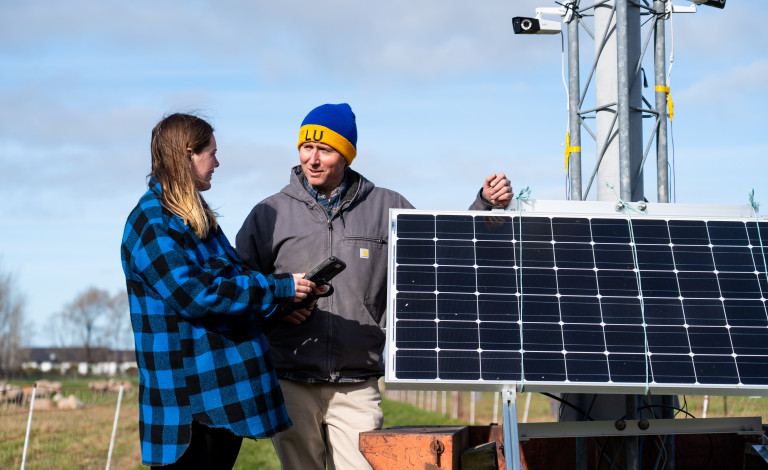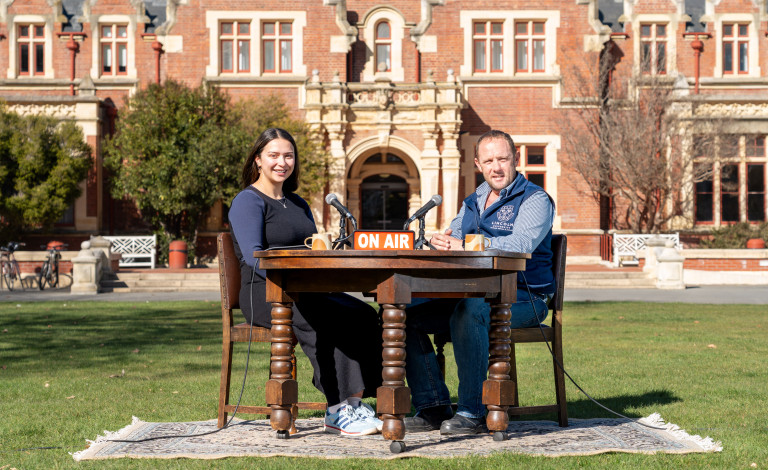Zoe’s West Coast conservation work takes flight
11 July 2025 | News
Lincoln University student Zoe Double hasn’t had your typical uni break. She’s been flying by helicopter and tramping around mountains to help protect native wildlife on the West Coast.
Zoe joined Predator Free Te Kinga as a field operator in the summer of 2024 and returned to the project this winter. The initiative, in partnership with the West Coast Regional Council, is working to restore biodiversity across Mt Te Kinga, 4000ha near Lake Brunner, by removing introduced predators, primarily possums.
Going into her final semester of a Bachelor of Science, majoring in Environmental Science and Water Management, Zoe said the field role has been an incredible opportunity.

“It's great to return to such meaningful work in a part of the country I’m lucky enough to call home.
“When I had the chance to join the Predator Free Te Kinga, it was exactly what I’d been looking for to apply what I was learning to real-world experience in predator control, biodiversity monitoring, and field-based problem-solving.”
That crossover between study and work has been rewarding. In SCIE393 Advanced Field Research, Zoe studied how carbon storage in soil changes under different vegetation types, which closely links to Te Kinga’s long-term goal of enhancing carbon sequestration through native forest regeneration.
Her general technical skills she’s learnt at Lincoln have also come into play for the project.
“Surprisingly this role does involve some computer work with identifying both pest and native species on trail camera footage and trap cameras, undertaking 5-minute bird calls, and GIS, are all things I've learnt in my courses at Lincoln.

“I’ve loved being able to apply what I’ve learnt at uni to work at Te Kinga, and vice versa.”
Zoe’s role has involved both technical and practical conservation skills. Her boots-on-the-ground work being the most exciting for her.
“This role has pushed me well outside my comfort zone in the best possible way.
“My absolute favourite part of this role has been flying in the helicopters to maintain traplines. I’ve also learned to use a machete to cut tracks, interpret navigation devices, identify bird calls, spot discrete signs of animal activity, among many more skills I never imagined myself having, let alone feeling confident with.
“I'm grateful for the opportunity to grow, contribute, and protect our native species and for a team that’s supported me in learning every step of the way.”
Zoe is also a Development West Coast Tertiary Scholarship recipient, supporting her full-time study and career ambitions.
She’s set to finish her degree at Lincoln in November and has already lined up a role, working as an Environmental Consultant with the NZ Institute for Minerals to Materials Research (NZIMMR), based in Greymouth.

